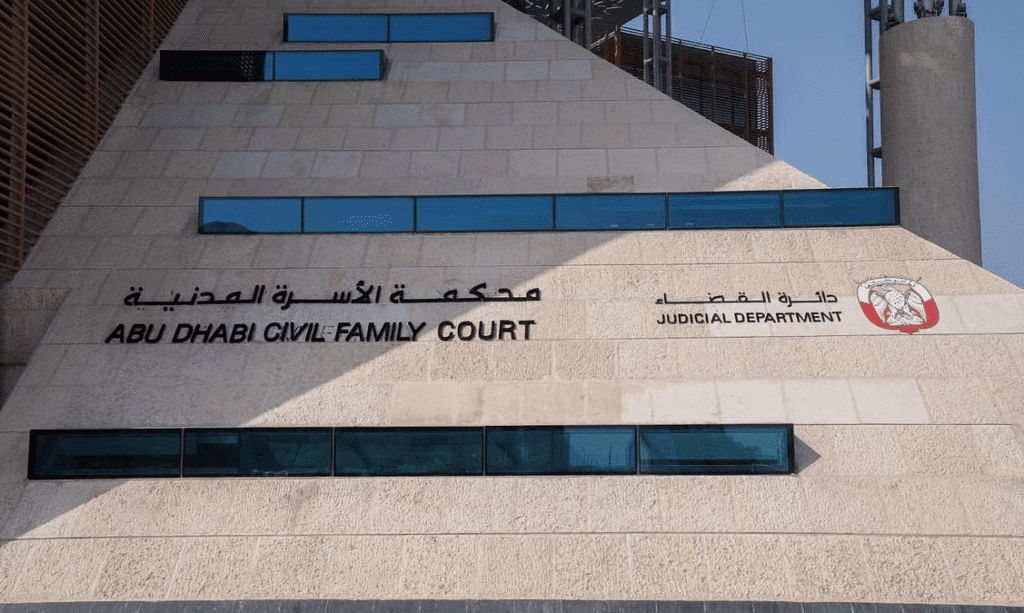The misappropriated funds case in Abu Dhabi has brought attention to workplace integrity, financial accountability, and the importance of strict corporate oversight. In this case, a former employee was ordered by the Abu Dhabi Civil Court to return Dh370,000 to his previous employer after it was found that he had misused company funds for personal benefit. The ruling highlights how seriously the UAE courts treat financial misconduct and serves as a strong reminder for both companies and employees about the legal and ethical responsibilities tied to handling money.
The Court Ruling and Its Significance
The Abu Dhabi Civil Court ruled that the ex-employee must repay Dh370,000 to his former company. The judgment was based on clear evidence showing that the funds were misappropriated for personal use, rather than being spent for legitimate business purposes.
In such cases, courts in the UAE carefully review bank transfers, expense reports, and other financial records before reaching a verdict. Once wrongdoing is proven, the law ensures that misused funds are returned to the rightful owner, and in some cases, additional penalties may apply.

This particular ruling reflects the judiciary’s determination to protect businesses from fraudulent practices and uphold fairness in commercial relationships.
Understanding Misappropriation of Funds
Misappropriation of funds happens when someone entrusted with money uses it in unauthorized ways. In corporate settings, this often involves employees, managers, or executives diverting company money for personal expenses.

Common examples include:
- Using company funds to pay for personal purchases.
- Unauthorized withdrawals from company accounts.
- Falsifying invoices or receipts to hide misuse.
- Transferring money to personal accounts under false pretenses.
In the UAE, where business and financial transactions are closely monitored, misappropriation of funds is treated as both a civil and criminal matter. Victims can seek repayment through civil courts, while criminal charges may lead to fines, imprisonment, or deportation for offenders.
Why the Misappropriated Funds Case Matters

This case is important for several reasons:
- Corporate Trust and Integrity
Companies rely heavily on trust when assigning financial responsibilities. Breaches of trust can damage not only finances but also workplace culture. - Legal Precedent
The court’s decision reinforces that employees who misuse company resources will be held accountable. This serves as a warning to others who may attempt similar misconduct. - Business Protection
Businesses in the UAE invest in compliance and audit systems. This case shows how proper financial oversight, combined with legal recourse, can help recover losses. - Public Awareness
Publicly reported cases remind employees and companies alike about the consequences of financial dishonesty.
Misappropriated Funds Case in the UAE Context
The UAE has a strong legal system that protects companies from fraud and embezzlement. Civil and commercial laws, combined with strict financial regulations, make it difficult for financial misconduct to go unnoticed for long.
The misappropriated funds case in Abu Dhabi fits into a broader pattern of rulings aimed at safeguarding the corporate environment. The UAE wants to maintain its reputation as a global hub for investment and business, and part of that mission involves ensuring financial integrity in workplaces.
Courts in the UAE often see cases where employees misuse resources. Sometimes, companies catch the issue during internal audits; other times, irregularities surface through whistleblowers or external financial reviews. Whatever the source, once evidence is clear, courts take decisive action.
Legal Framework for Financial Misconduct in the UAE
The UAE has clear laws to deal with cases like this. The main legal tools include:
- UAE Penal Code: Misappropriation of funds can be treated as fraud or breach of trust, leading to criminal charges.
- Civil Transactions Law: Provides a basis for companies to demand repayment through civil claims.
- Commercial Companies Law: Ensures directors, managers, and employees act in good faith when handling corporate funds.
These laws work together to ensure businesses can recover their money and prevent similar misconduct.
Lessons for Companies
The misappropriated funds case offers valuable lessons for organizations:
- Strengthen Internal Controls
Companies should ensure regular audits, expense tracking, and dual-authorization systems for financial transactions. - Encourage Whistleblowing
Creating safe channels for employees to report suspicious activity can help uncover issues early. - Train Employees on Ethics
Providing workshops and training about financial responsibility reduces the risk of misconduct. - Legal Preparedness
Businesses should always be prepared to take swift legal action when fraud is detected, ensuring timely recovery of funds.
Lessons for Employees
Employees also have takeaways from this case:
- Understand the Law
Misappropriation is not just a workplace violation but a criminal offense in the UAE. - Personal Integrity Matters
Career growth relies on trust. Engaging in financial misconduct destroys professional credibility. - Short-Term Gain vs. Long-Term Loss
While misusing funds may provide temporary benefits, the long-term consequences—legal action, fines, and career damage—far outweigh them. - Seek Support When in Need
Instead of misusing company resources, employees facing financial struggles should explore legal solutions such as salary advances or personal loans.
Broader Implications of Misappropriation Cases
Cases like this do more than resolve individual disputes. They set a tone for the business environment. In the UAE, where companies operate in global markets, maintaining strict financial accountability helps attract international investors.
Such rulings also reassure entrepreneurs and startups that their businesses can thrive in a safe and regulated environment. This is particularly important in a country like the UAE, which positions itself as a hub for innovation, trade, and foreign investment.
Real-World Examples and Similar Cases

Over the years, UAE courts have handled several cases of misappropriated funds:
- In some cases, employees were ordered to repay millions after falsifying invoices.
- Bank employees have been caught diverting client money into personal accounts.
- Corporate managers were found guilty of inflating project costs to pocket the difference.
Each case sends the same message: financial misconduct will not be tolerated.
Protecting the UAE’s Business Reputation
The UAE’s reputation as a safe place for investment depends on legal systems that discourage fraud and protect assets. By handling misappropriation cases swiftly and transparently, courts reassure businesses that they can trust the environment in which they operate.
This ruling in the misappropriated funds case adds to that confidence and strengthens the UAE’s appeal as a reliable business destination.
Moving Forward
The court’s decision requiring the ex-employee to repay Dh370,000 closes one chapter but opens wider discussions about preventing workplace fraud. It serves as a strong reminder that financial misconduct has consequences, and accountability will always be enforced.
Companies must continue improving internal systems, and employees must remember that trust is a priceless asset in their careers.
Conclusion
The misappropriated funds case in Abu Dhabi is more than just a court ruling. It is a lesson in financial integrity, legal accountability, and workplace ethics. By ordering the ex-employee to repay Dh370,000, the court reinforced a crucial principle: misusing company resources for personal gain will not be tolerated.
This case highlights the UAE’s commitment to protecting businesses and maintaining trust in its financial system. For companies, it is a reminder to strengthen oversight. For employees, it is a warning that dishonesty can destroy careers.
In the end, the ruling is not just about one company or one employee—it is about creating a culture of transparency and accountability that supports the UAE’s long-term growth and stability.
Do follow UAE Stories on Instagram
Read Next – Afghanistan Beat UAE: Zadran and Atal Shine, Rashid Makes History














